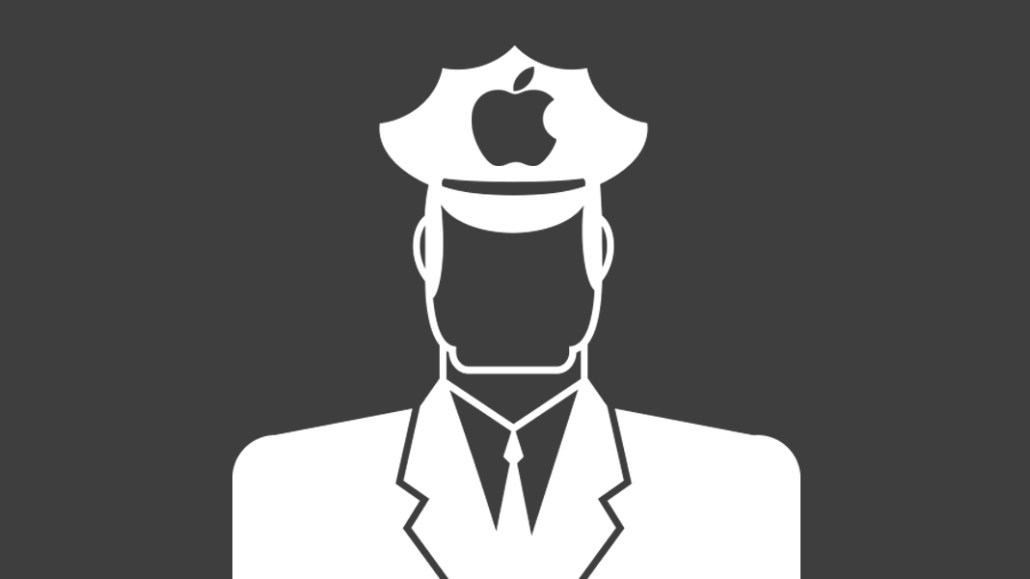Save 50% on a 3-month Digiday+ membership. Ends Dec 5.
Infowars ban shows how platforms fail to enforce policies evenly across services

Apple pulled five Infowars podcasts entirely from its platform, but the tech giant hasn’t wiped Alex Jones from its service. As of Tuesday morning, a day after a string of platforms banning Infowars, the official Infowars app remained in Apple’s App Store in the News category.
Why the apparent contradiction? Typical of every major tech giant that presides over an ecosystem of apps and services, Apple’s podcasts app and App Store have different policies. Other platforms have similar inconsistencies across their products. This works to the advantage of the individual companies by allowing them to make decisions on a case-by-case basis, leaving developers, publishers and their consumers ever more confused.
On Aug. 6, Apple was applauded by Sleeping Giants and individuals in the movement to ban Infowars. Some of that praise is warranted: CNN’s Dylan Byers reported that Apple’s decision, led by Tim Cook and Eddy Cue, influenced Facebook, then YouTube and Spotify to make similar moves.
The story was more complicated. An Apple spokesperson said of the podcast ban, “Apple does not tolerate hate speech, and we have clear guidelines that creators and developers must follow to ensure we provide a safe environment for all of our users.” Yet the rep wouldn’t say if the Infowars app violates Apple’s App Store guidelines. The guidelines, available on its developer page, read: “apps should not include content that is offensive, insensitive, upsetting, intended to disgust, or in exceptionally poor taste.”
“One thing that did a disservice to everyone was how journalists rushed to cover this like a horse race with winners and losers, ignoring that InfoWars’ App is No. 4 in the App Store and still available,” said Christian Hertenstein, vp at Definers Public Affairs, an opposition research company.
Twitter also has a history of inconsistent enforcement. The services have different policies that have been enforced separately. Geoff Golberg, a former Shorty Awards nominee for “Periscoper of the Year,” was banned from Periscope in April 2017 for an undetermined reason. But he’s still active on Twitter, where he commonly calls out the platform’s bot problem. A Twitter spokesperson told CNBC that Infowars and Alex Jones do not violate Twitter’s or Twitter-owned Periscope’s rules.
“Twitter’s culture is one such that the left hand doesn’t know what the right hand is doing. Hence the fact that Twitter and Periscope aren’t enforcing consistent policies comes as no surprise to me. Ultimately, it’s a sign of poor leadership,” Golberg said.
Ad position: web_incontent_pos1
Over at Facebook, the platform removed Infowars pages, but Jones still has an account on Facebook-owned Instagram. Google-owned YouTube banned Infowars on Aug. 6 for repeatedly violating its community standards, but Jones is still on Google’s Google+ and Google Hangouts.
Given that Facebook banned Infowars for “glorifying violence, which violates our graphic violence policy, and using dehumanizing language to describe people who are transgender, Muslims and immigrants, which violates our hate speech policies,” according to its blog post, the app seemingly would violate Apple’s App Store guidelines, given that Infowars airs the same content across Facebook and Apple.
Similar reasoning could be applied to Twitter. In December, Twitter changed its enforcement on hate speech to include monitoring a user’s behavior “on and off platform.” It could use that reasoning to justify banning a participant in the Unite the Right rally in Charlottesville, Virginia, last year — the last time platforms together blocked individuals — or in Washington, D.C., this year. They also could look to Facebook’s and Apple’s decisions to separately ban Alex Jones and Infowars for hate speech on their platforms.
Platform critics argue that the varying policies speaks to the platforms’ excessive power.
“Facebook is a private company. It can do what it wants, but its extraordinary use and the way it can manipulate that to serve its own bottom line is what’s problematic,” said Sarah Miller, deputy director of Open Markets Institute and a leader at Freedom from Facebook, an advocacy group that’s campaigning to break up the social media giant.
More in Media

What publishers are wishing for this holiday season: End AI scraping and determine AI-powered audience value
Publishers want a fair, structured, regulated AI environment and they also want to define what the next decade of audience metrics looks like.

Digiday+ Research Subscription Index 2025: Subscription strategies from Bloomberg, The New York Times, Vox and others
Digiday’s third annual Subscription Index examines and measures publishers’ subscription strategies to identify common approaches and key tactics among Bloomberg, The New York Times, Vox and others.

From lawsuits to lobbying: How publishers are fighting AI
We may be closing out 2025, but publishers aren’t retreating from the battle of AI search — some are escalating it, and they expect the fight to stretch deep into 2026.
Ad position: web_bfu



